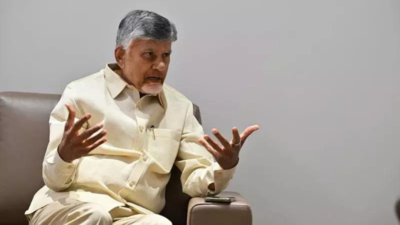ARTICLE AD BOX

VIJAYAWADA: Andhra Pradesh, which once amended its laws to bar people with more than two kids from contesting panchayat and municipal elections, now plans to incentivise having larger families as part of a strategy to combat dropping fertility rates and shift focus to what chief minister N Chandrababu Naidu terms “investment in human capital”.
“I am looking at giving financial incentives by taking a family as a unit. The bigger families may get higher incentives,” Naidu told TOI ahead of completing a year in office on June 12.“As part of the ‘Zero Poverty ’ initiative, I have already rolled out an interesting model in which wealthier people will adopt poor families. This will not only bridge income disparities, but also ensure welfare of the entire family,” he said.The four-time CM, who has been an advocate of population management, said the current demographics in the southern states require govts to revisit their strategies.With current fertility rate, Andhra will face serious problems: CMFertility rates in Andhra Pradesh need to increase. At the present rate, AP will face serious problems… That is why I am thinking of bigger families,” CM N Chandrababu Naidu said. He announced recently that female employees could avail of maternity leave any number of times.
“It was limited to two times only. We have removed the restrictions,” he said.The state govt also made it mandatory for every organisation to provide childcare centres at workplaces. Naidu announced financial assistance of Rs 15,000 for every schoolchild. “We give this money directly to the mothers of students. Apart from this, the NDA govt in AP is planning to announce financial assistance to couples for having more kids.”
The two-child policy previously applicable to prospective candidates for panchayat and municipal polls has been reversed.In 2023, Sikkim announced incentives for indigenous people to have more children. Mizoram, too, has been encouraging tribal couples to have more than two kids. Tamil Nadu CM M K Stalin said recently that with the Centre pushing for population-based delimitation of constituencies, there was a need for people in the state to have more children.



.png)
.png)
.png)
















 3 hours ago
4
3 hours ago
4









 English (US) ·
English (US) ·